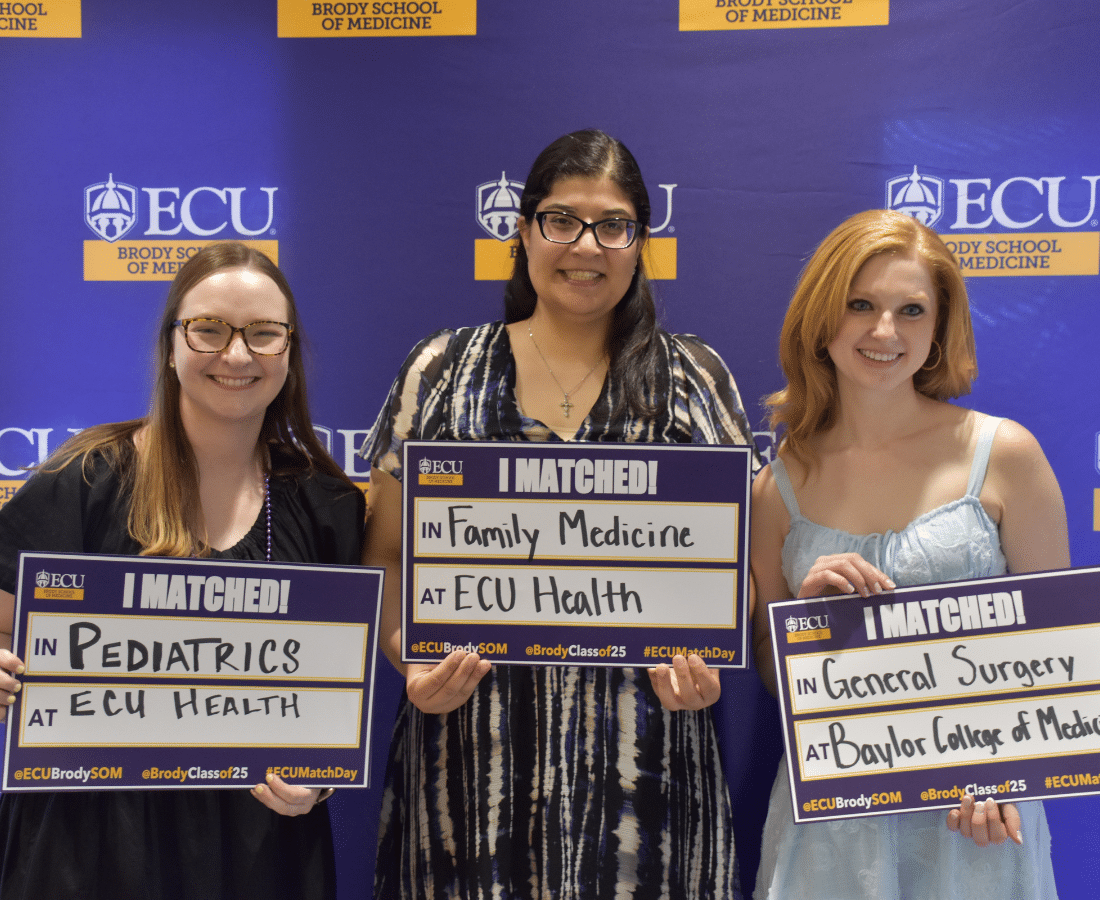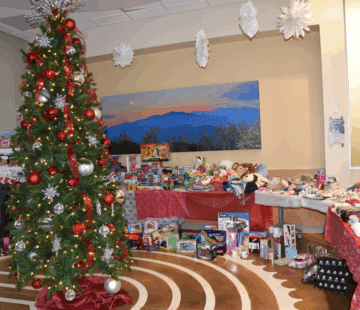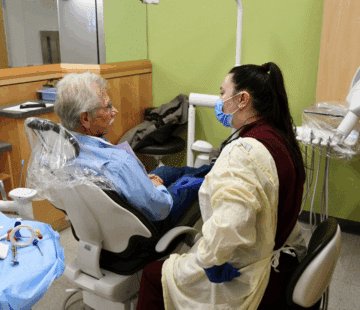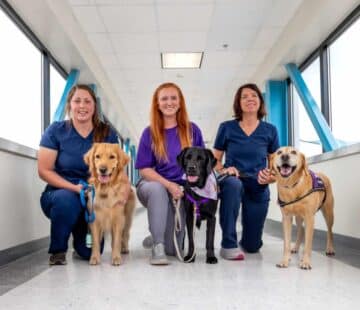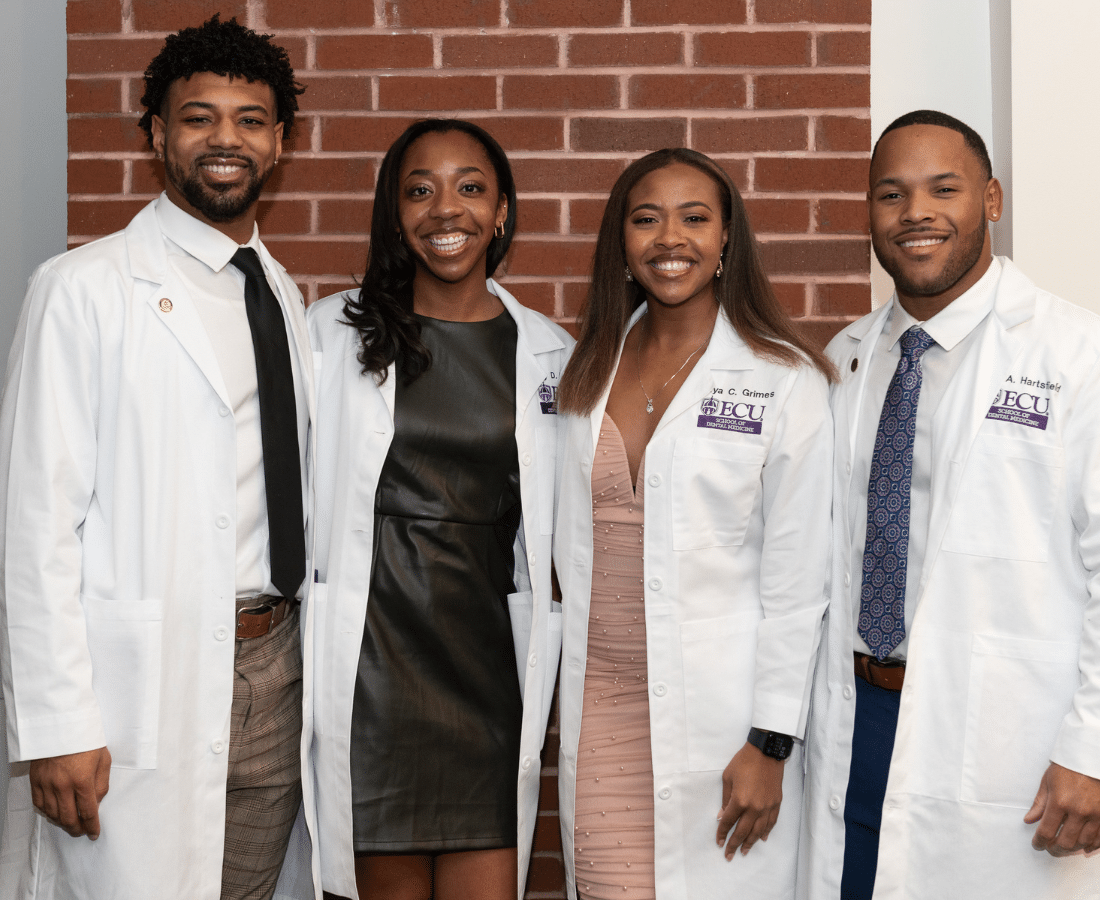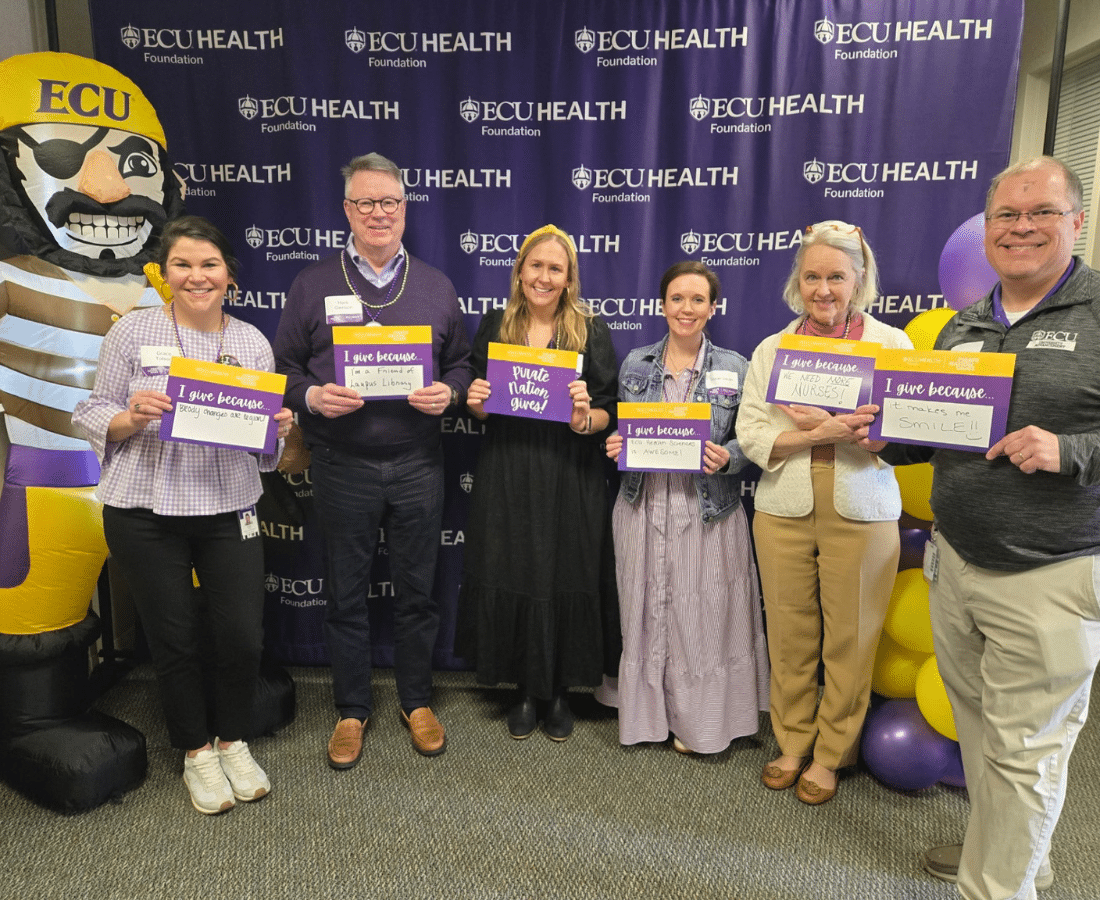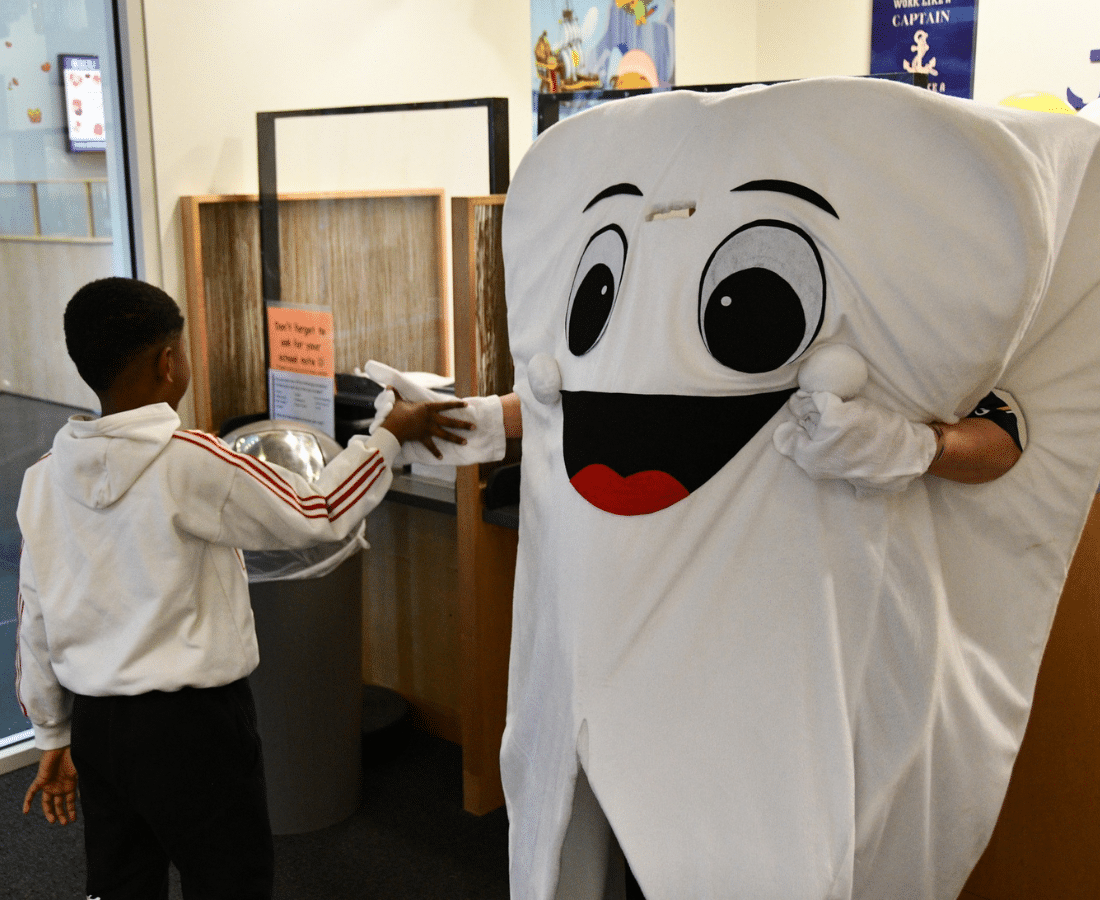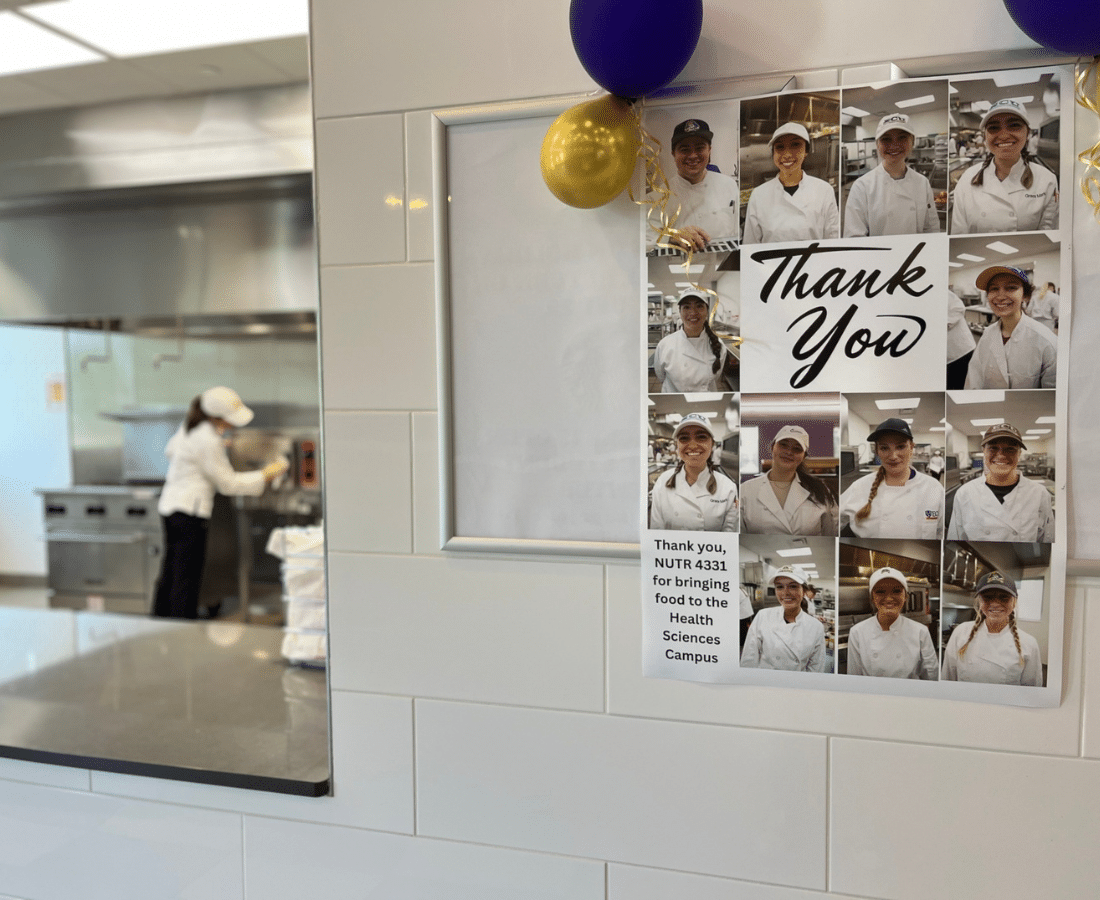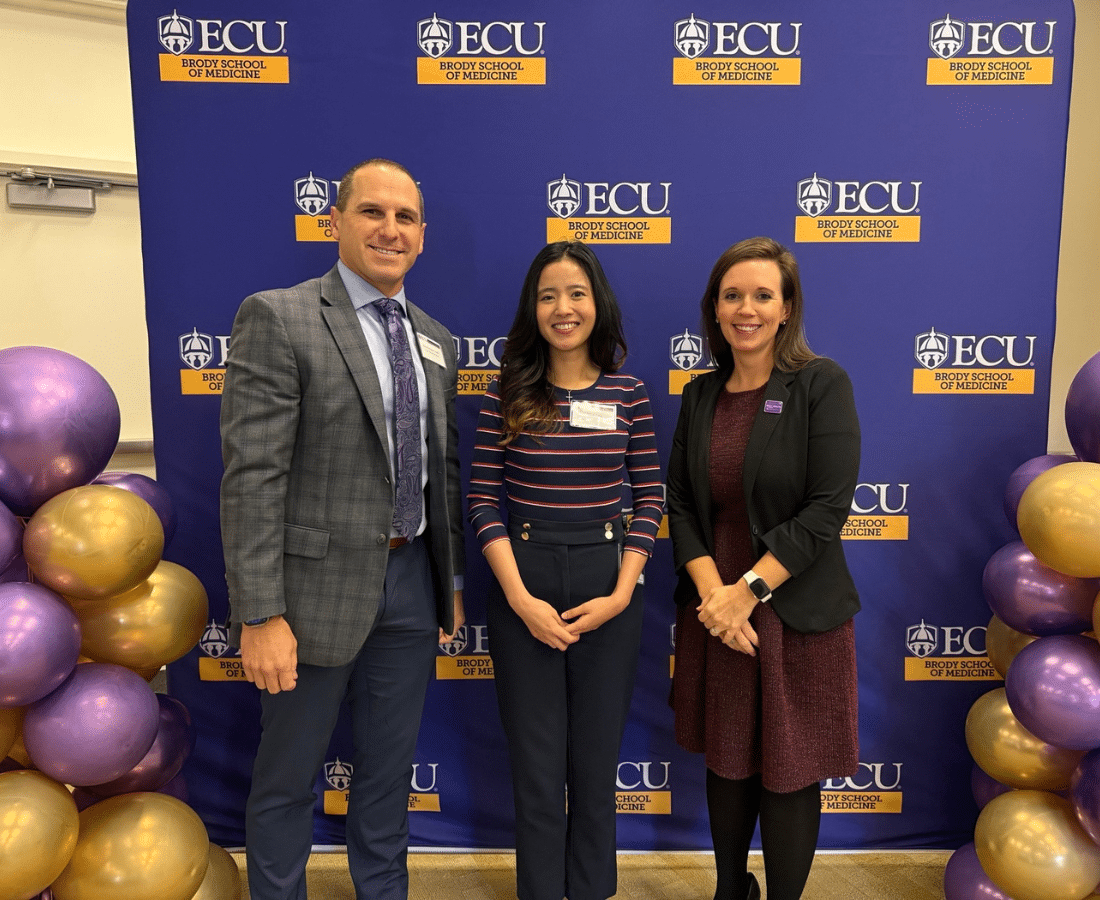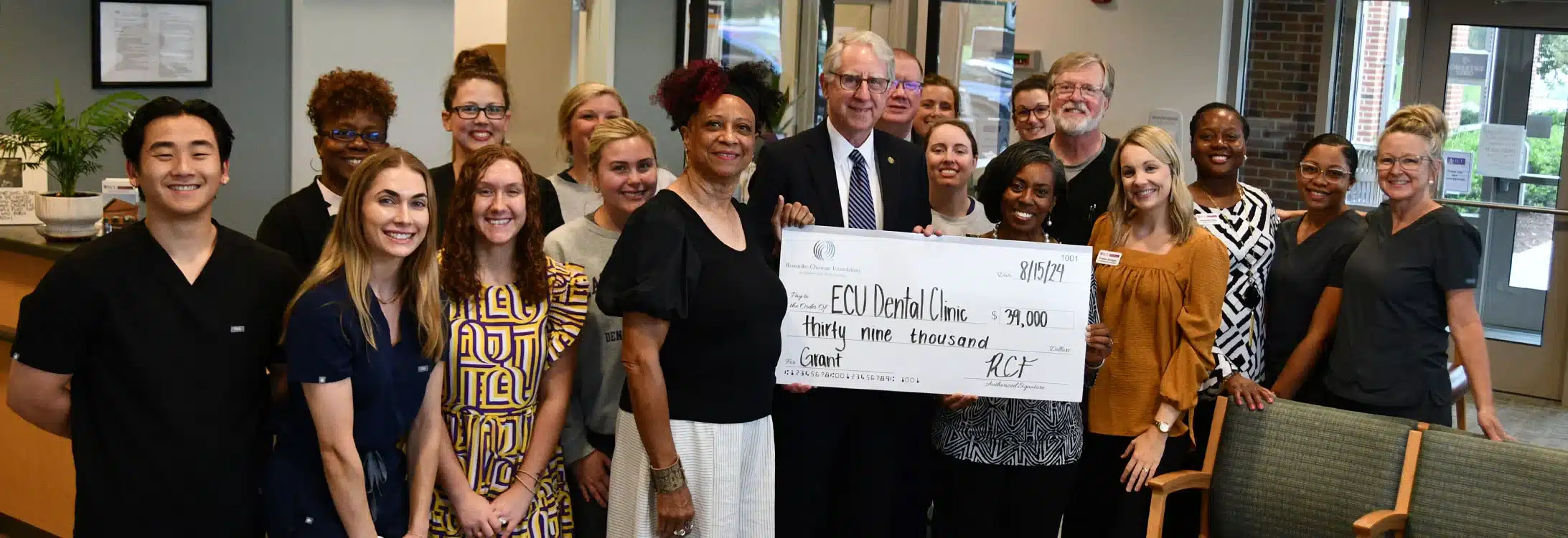At the Brody School of Medicine at East Carolina University, the Class of 2025 celebrated Match Day in style.
Sixty-eight of the 69 students in the class matched. One student elected to do a research year in orthopedics before entering the match program. Fifty-two percent of the class will enter primary care residencies, with 42% staying in North Carolina and 20% matching at ECU Health Medical Center.
The class stood with their families, friends, classmates and faculty members as they tore open their envelopes to reveal the next stop in their medical school journeys. Prior to receiving their envelopes, each student had the opportunity to walk across the stage to a song of his or her choice and a personalized presentation slide shown on a projector screen.
“Match Day is always a special moment in a physician’s journey, and today is no exception,” said Dr. Michael Waldrum, dean of the medical school and CEO of ECU Health. “These students have dedicated themselves to the noble pursuit of caring for others and now have the opportunity to take all they’ve learned here at the Brody School of Medicine to improve the lives of countless patients they will serve in their careers. I could not be more proud of the Class of 2025 on this special day.”
The East Carolina University School of Dental Medicine’s Class of 2027 was honored on Friday, Feb. 28, during the school’s annual White Coat Ceremony — which ushered the students into the clinical phase of their dental education.
The students were joined by family, friends, faculty, staff, fellow students and administrators as they walked across the stage and joined the ranks of those who came before them in the dental profession.
In mid-2022 Dr. Swati Surkar, assistant professor of physical therapy at the College of Allied Health Sciences and the study’s director, began researching the applicability of Hand-Arm Bimanual Intensive Training, or HABIT, in children with unilateral cerebral palsy.
The technique involves inducing ischemia, or the restriction of blood flow, to part of a person’s arm and then having the person perform a series of tasks once the blood flow resumes normally. In past studies, HABIT interventions had proven effective in improving coordination, but little research had been conducted to assess its effectiveness in improving and retaining real-world bimanual activities and hand function.
Over the past two years, Surkar and a team of student volunteers from a wide range of majors and research interests have held HABIT camps for children mostly from North Carolina, but from as far away as Florida, New Hampshire and even Mexico.
During the camps, the children were fitted with watch-like monitors that were worn on both wrists and captured an incredible amount of data about how their hands and arms moved —including range of motion and speed — during the intensive therapy. After the ischemia was induced through a blood pressure cuff, the children would stack cups, throw balls or move through obstacle courses that demanded a lot of effort from both arms.
Her research is showing very promising results.
More than 2,300 alumni, friends and students supported East Carolina University during Pirate Nation Gives on March 5.
Staff and faculty on the health sciences campus added layers of energy and fun to the day beginning with a first-time Pirate Nation Gives kick-off breakfast hosted by the ECU Health Foundation. Challenges were announced to sweeten the idea of supporting funds for allied health sciences, dental, medical and nursing.
Roxanne Wilder, a clinical assistant professor with the College of Allied Heath’s nutrition science department, said the No Quarter Café is a win-win for both her students and the learning community they are a part of.
Wilder’s students are aspiring to be dietitians, to put their education to use in hospitals, long-term care facilities and other food service operations. In recent years, her students have prepared meals in a way-too-small commercial kitchen in the Rivers Building. In 2023 students pre-packaged meals that were sent to the Health Sciences Campus; more recently main campus customers were served in person.
This spring, Wilder and her students moved to the commercial space in the Health Sciences Student Center — with its spacious kitchen that better resembled facilities they may work in after graduation.
Led by its mission to provide assistance to those in need and to help support the community, the Service League of Greenville recently supported the ECU School of Dental Medicine with a $25,000 gift toward patient care funds and the Smiles for Veterans program.
In 2023, the Service League of Greenville established the Laughinghouse Patient Care Fund in the School of Dental Medicine to support dental care needs for Pitt County residents. The recent gift invests an additional $20,000 into the Laughinghouse Fund and directs $5,000 for the upcoming dental care day for veterans scheduled for December 7 at Ross Hall.
“The Service League sees the Patient Care Fund as a way to partner with the School of Dental Medicine to provide assistance to those who are in need of dental services,” said League President Cassie Causey.
The Service League of Greenville is known for its decades of support for health care initiatives and the education of health care providers. In 2018, the organization showed its commitment to health care education through endowed scholarships for students enrolled in the ECU School of Dental Medicine, the College of Allied Health, the College of Nursing, and the Brody School of Medicine.
The Service League of Greenville Scholarship Endowment has funded more than $105,000 in scholarships to students and will continue to provide scholarship support at the Brody School of Medicine, the School of Dental Medicine and the College of Allied Health. In spring 2024, the League created an endowment in the College of Nursing to establish the Service League of Greenville Nursing Scholars. This million-dollar gift will provide full tuition and fees for the academic year in which students receive the award.
During the dental school presentation, League President Cassie Causey and Becki Orr, Laughinghouse Chair, met dental students Riley Girdharry and Peyton Piscorik, recipients of the Service League scholarship.
“Meeting these two dedicated dental students brings to fruition the mission of the Service League and the vision of Dr. Laughinghouse to focus on philanthropy, assisting those in need and improving the health of the residents of Pitt County,” said Orr. “It is gratifying to know that we are providing dental services to patients who are receiving assistance from the Laughinghouse Patient Care Fund.”
Recipient Girdharry said that caring for patients through the Laughinghouse Patient Care Fund will enhance his clinical experiences. “It brings me much joy to know that ECU’s School of Dental Medicine has provided means to support Pitt County residents and other demographics in the area,” he added. “My time to start treating patients is quickly approaching and I couldn’t be more excited to utilize the Patient Care Fund and aid the members of the community. I want to thank the Service League of Greenville for supporting me towards a goal of upholding the School of Dental Medicine’s mission and allowing me to give back to the community that gave me so much.”
East Carolina University leaders broke ground Thursday on a planned seven-story, 195,000-square-foot Center for Medical Education Building financed by the state of North Carolina. The project promises to make space for much larger incoming classes by the end of the decade. It is financed with $265 million from the state of North Carolina.
The groundbreaking took place during the two-day meeting of the ECU Board of Trustees. Remarks were made by ECU Chancellor Philip G. Rogers and Dr. Michael Waldrum, dean of the medical school and CEO of ECU Health, along with University of North Carolina System President Peter Hans and fourth-year medical school student Shantell McLaggan.
Years in the planning, the project moved closer to reality in 2021 when the North Carolina legislature approved and the governor signed into law a state budget that earmarked $265 million for the new center.
The chancellor thanked state leaders, members of the ECU Board of Trustees and the UNC System, Brody School and ECU Health leadership and department chairs, alumni and donors, faculty and students. He also thanked the design team and construction contractors and said the day was a celebration of the start of a journey that will impact countless families in eastern North Carolina and beyond.
“There is a shortage of primary care doctors in our country that’s acute for rural Americans. East Carolina University stands in the breach, training today’s medical students who will choose to practice primary care in underserved areas tomorrow,” said Rogers. “We thank our state’s elected leaders and the people of North Carolina for their trust in our commitment to improve rural health and well-being. We pledge to steward this public investment in service of our medical students – the next generation of highly trained physicians giving patients throughout our state life-saving help and hope.”
Last year, the president of the American Medical Association spoke out against the nationwide physician shortage that’s left more than 83 million people in the U.S. without sufficient access to a primary care physician. Rural communities are hit hardest.
The Brody School of Medicine is among the nation’s top schools for graduates who choose to practice primary care in medically underserved areas in the state. It is No. 2 in the nation for graduates who choose to practice family medicine.
“The Brody School of Medicine and ECU Health have a great culture, which is foundational to our important rural mission,” said Waldrum. “The Center for Medical Education Building will directly support the mission by providing a state-of-the-art environment in which medical students can train right here in one of the largest rural regions in the nation. It is incredibly exciting to know we will have a modern facility intentionally designed to ensure our students, faculty and staff can continue to benefit from a high-quality medical education experience that supports them and our state.”
When it opens in 2027, the Center for Medical Education Building will provide state-of-the-art classrooms, anatomy labs and simulation technology integrated with flexible spaces, collaboration rooms, small group student spaces and green infrastructure. Sections of the building will be designed as living rooms for four blended cohorts of medical school students. Common spaces will serve as a “home” for students to study, gather and recharge.
“This facility is 100% designed with students in mind,” said Dr. Jason Higginson, the school’s executive dean. “Recruiting the most promising future doctors means pledging the highest quality medical education and facilities. We see that pledge coming to life here in these renderings.”
“Medical school is so rigorous. Success depends both on labs and hands-on learning environments along with quiet and comfortable spaces that host hours and hours of quiet study. Our students need all of it before they begin treating patients in clinical settings. They have it here at the Brody School of Medicine.”
In more than a half century of training eastern North Carolina physicians, ECU has bestowed more than 3,500 degrees in medicine. Expansion will allow the school to admit more incoming students – from fewer than 100 this year to as many as 120 after expansion.
Construction will begin at the northeast corner of the medical school footprint starting in March. The Center for Medical Education Building will open during the 2027-2028 academic year.
Dental health capabilities got a boost at East Carolina University School of Dental Medicine’s community service learning center (CSLC) in Ahoskie through a gift from the Roanoke Chowan Foundation (RCF).
The first-time $39,000 gift from RCF – through the ECU Health Foundation – has allowed the school to secure equipment and resources to offer moderate sedation at the CSLC. Additionally, funds will be used to purchase a new Primescan Connect camera, which will update digital dentistry capabilities, and for nitrous carts, to help with care for pediatric patients.
“This state-of-the-art equipment provides our students and residents with vital exposure to digital dentistry,” said Dr. Greg Chadwick, dean. “This equipment also will help keep patients out of the local hospital operating room for dental surgery, while providing excellent educational opportunities for our students and residents.”
The alignment of ECU’s medical and health sciences and ECU Health helped establish a new relationship with RCF. ECU Health Roanoke Chowan Hospital is one of the health system’s nine hospitals. The foundation became an independent entity from the hospital after alignment.
“Our foundation has a long partnership of supporting the Ahoskie dental clinic through the Roanoke-Chowan Community Health Clinic. The alignment with ECU Health and the ECU Health Foundation provided an opportunity to grow our assistance by giving to the School of Dental Medicine directly,” said Wendy Vann, with RCF. “The school, in turn, can enhance the services they are able to provide in our community.”
Since 1985, the foundation has provided more than $17 million to address health and wellness in the Roanoke-Chowan area, including Bertie, Gates, Halifax and Hertford counties.
Roanoke Chowan Foundation’s gift for the Ahoskie CSLC was made to the ECU Health Foundation, the philanthropic arm supporting ECU Health and ECU’s health sciences campus.
“This gift, supporting the Ahoskie CSLC, highlights the alignment of the health system with the region we serve and our shared purpose to improve the overall health, education and well-being of eastern North Carolina,” said Scott Senatore, Chief Philanthropy Officer, ECU Health Foundation. “The Roanoke Chowan Foundation is a dedicated community partner, and we appreciate their commitment to the CSLC in Ahoskie.”

